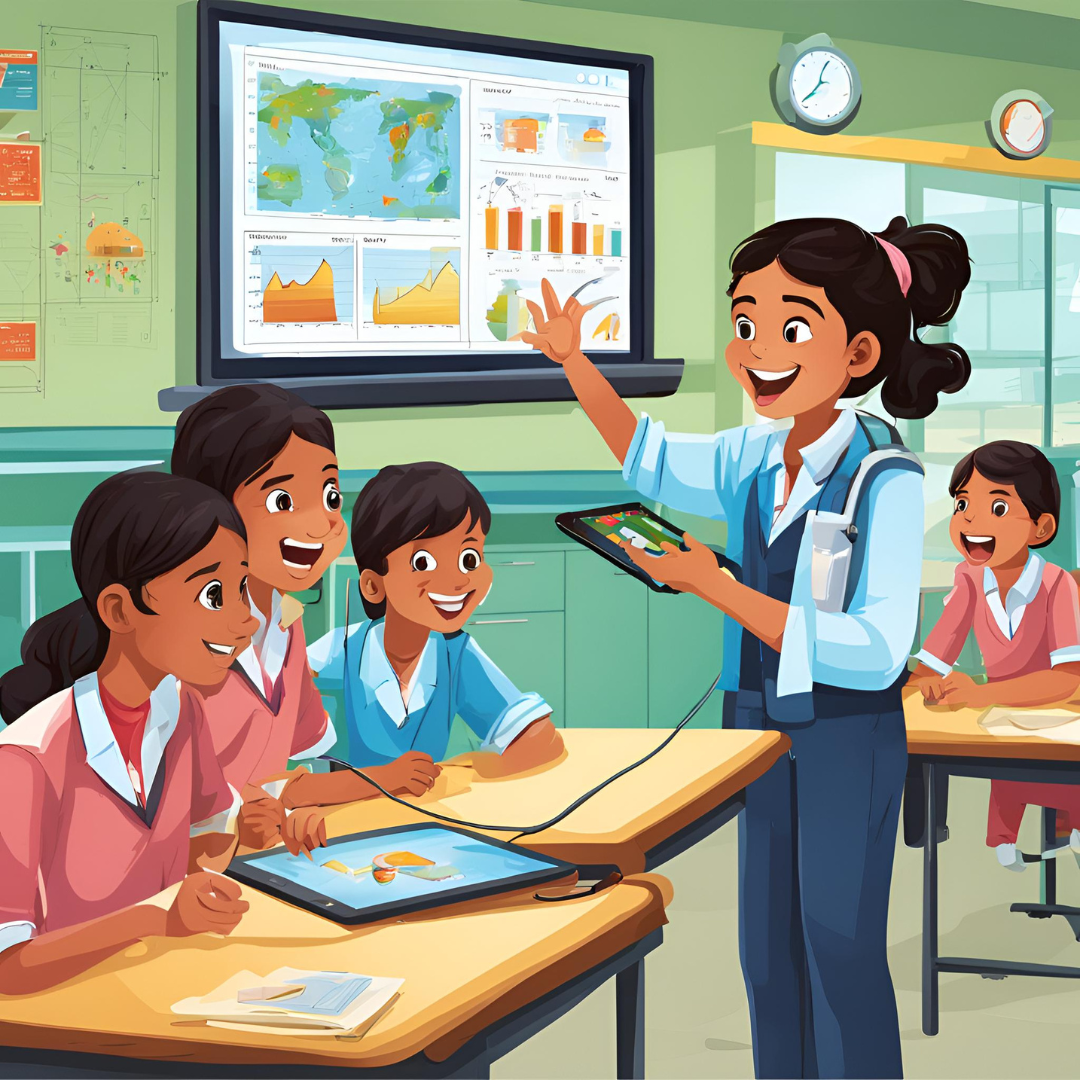ST
White-paper
Sep 04, 2024

The National Education Policy (NEP) 2020 aims to revolutionize Indian education by promoting experiential learning, the integration of technology, and a stronger focus on STEM (Science, Technology, Engineering, and Mathematics) subjects.
Scholarlab, an innovator in virtual laboratory solutions, plays a vital role in advancing the implementation of NEP 2020 by addressing key educational challenges outlined in the National Curriculum Framework (NCF) Mandate document
1. Promoting Experiential Learning
-
NEP 2020 and the NCF encourage a shift from traditional rote learning to hands-on, experiential learning methods. Scholarlab’s virtual labs are designed to support this shift by providing a dynamic platform where students can engage in simulations and virtual experiments. These interactive environments enable students to explore scientific concepts in a practical manner, enhancing their critical thinking and problem-solving abilities. This approach aligns with NEP’s goals of making learning more engaging and cognitively stimulating
2. Enhancing STEM Education
-
The NEP 2020 emphasizes strengthening STEM education across all educational levels, aiming to nurture innovation and scientific temper in students. Scholarlab supports this vision by offering simulation-based learning tools that make complex scientific ideas accessible and engaging. By providing immersive experiences, Scholarlab encourages students to explore STEM subjects more deeply, inspiring creativity and a deeper understanding of science and technology, thereby supporting NEP’s objectives.
3. Addressing Infrastructure Gaps
-
A significant challenge to the successful implementation of NEP 2020 is the inadequate infrastructure, particularly the absence of fully equipped science labs in many schools, especially those in rural areas. Scholarlab addresses this gap by providing virtual labs that do not depend on physical resources. Accessible on various digital devices, these labs offer high-quality science education to students irrespective of their geographical location, thereby promoting the NEP’s focus on equity and inclusion in education.
4. Facilitating Integration with Digital Platforms
-
NEP 2020 advocates for integrating technology into education through the use of digital learning platforms. Scholarlab is designed to seamlessly integrate with Learning Management Systems (LMS) and other digital platforms, ensuring easy adoption in schools. This capability facilitates the NEP’s digital transformation goals, allowing schools to incorporate modern, interactive learning tools into their curricula, enhancing the overall educational experience
5. Alignment with NCF Mandate
-
The NCF underscores the importance of practical, experiment-based learning, including virtual labs and real-world applications of science. Scholarlab’s solutions align with these mandates, emphasizing experiential learning that helps students connect theoretical knowledge with practical outcomes. By supporting educators and students in implementing these experiential learning methods, Scholarlab contributes significantly to the realization of the NCF’s vision.
In summary, Scholarlab is a key enabler in the successful implementation of NEP 2020, particularly in promoting experiential learning, enhancing STEM education, addressing infrastructure challenges, and facilitating the integration of technology in schools. By aligning its offerings with both NEP and NCF, Scholarlab not only helps schools meet educational mandates but also ensures that students receive a modern, engaging, and equitable education. Scholarlab’s commitment to these goals positions it as a vital partner in transforming the Indian education system and preparing students for the demands of the future.
Scholarlab can significantly enable acceleration of the implementation of the National Education Policy (NEP) 2020 in India, especially in terms of its emphasis on experiential learning, STEM education, and the integration of technology in teaching.
